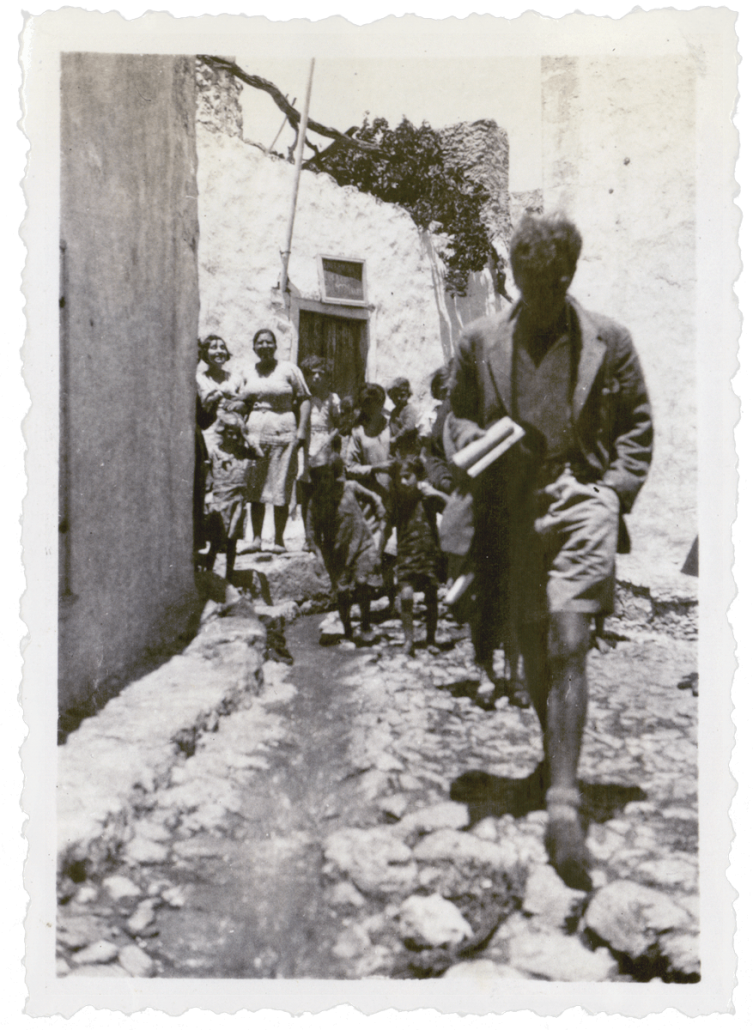
‘Street Scenes in Stavrokhori, Crete, 1938’ (PEN 07/02/06/758).
The Pendlebury Archive Project
“Beloved friend! Crete will keep your memory among her most sacred treasures. The soil which you excavated with the spade of the archaeologist and watered with the blood of a warrior will forever enfold you with gratitude.”
- Nikolaos Platon at Pendlebury’s Memorial 1947
- Nikolaos Platon at Pendlebury’s Memorial 1947
“Αγαπημένε φίλε! Η Κρήτη θα διατηρήση την μνήμη σου ανάμεσα στα πιό ιερά της κειμήλια. Το χώμα που έσκαψες με την σκαπάνη του αρχαιολόγου και πότισες με το αίμα του πολεμιστή θα σε περιβάλλει πάντοτε με ευγνωμοσύνη.”
– O Νικόλαος Πλάτων στο μνημόσιο του Pendlebury το 1947
– O Νικόλαος Πλάτων στο μνημόσιο του Pendlebury το 1947
